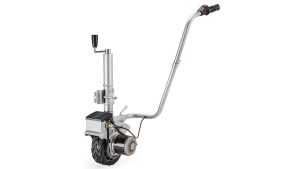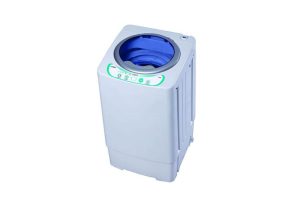When it comes to navigation and safety in the outdoors, there are many tools available to hikers, campers, and boaters. Two of the most common devices are beacons and GPS units. While both of these tools can be useful, they serve different purposes. In this article, we will explore the difference between beacons and GPS units.
What is a Beacon?
A beacon (also known as a PLB or Personal Location Beacon) is a small, battery-powered device that transmits a radio signal. These signals are often used for tracking and locating purposes, such as in search and rescue operations. Beacons are commonly used in the outdoors by hikers, campers, and boaters to signal for help in case of an emergency.
There are different types of beacons available, including personal locator beacons (PLBs) and emergency position indicating radio beacons (EPIRBs). PLBs are small, handheld devices that transmit a distress signal via satellite to rescue authorities. EPIRBs are similar devices but are typically used by boats and ships.
What is GPS?
GPS, or Global Positioning System, is a satellite-based navigation system. GPS units use signals from a network of satellites to determine your exact location on the earth. These devices are commonly used for navigation and tracking purposes, such as in hiking, boating, and aviation.
GPS units can be handheld devices, or they can be built into other devices such as smartphones and car navigation systems. GPS units typically provide information such as your current location, speed, and direction of travel.
Difference Between Beacon and GPS
The main difference between beacons and GPS units is their purpose. Beacons are primarily used for signaling for help in case of an emergency, while GPS units are used for navigation and tracking purposes.
Beacons are typically used as a last resort when other forms of communication have failed. They are designed to transmit a distress signal that can be received by rescue authorities. GPS units, on the other hand, are used for navigation and tracking purposes. They provide information about your current location, as well as your speed and direction of travel.
Another difference between beacons and GPS units is their range. Beacons typically have a range of several miles and can transmit signals via satellite to rescue authorities. GPS units, on the other hand, rely on a network of satellites to determine your location. While GPS units can provide accurate location information, they can be affected by obstacles such as buildings and trees.
When to Use a Beacon vs. GPS
Knowing when to use a beacon vs. GPS is important for staying safe in the outdoors. Beacons should be used in case of an emergency when other forms of communication have failed. They can be used to signal for help, and their distress signal can be received by rescue authorities.
GPS units, on the other hand, are used for navigation and tracking purposes. They can be used to determine your current location, as well as your speed and direction of travel. This information can be helpful for planning a route or staying on course.
It’s important to note that beacons and GPS units are not interchangeable. While a GPS unit can provide accurate location information, it cannot transmit a distress signal like a beacon can. In an emergency situation, it’s important to have both a beacon and a GPS unit available.
Conclusion
In conclusion, beacons and GPS units serve different purposes in the outdoors. Beacons are used for signaling for help in case of an emergency, while GPS units are used for navigation and tracking purposes. While both of these tools can be useful, they should not be used interchangeably. It’s important to have both a beacon and a GPS unit available when venturing into the outdoors to ensure the highest level of safety.






